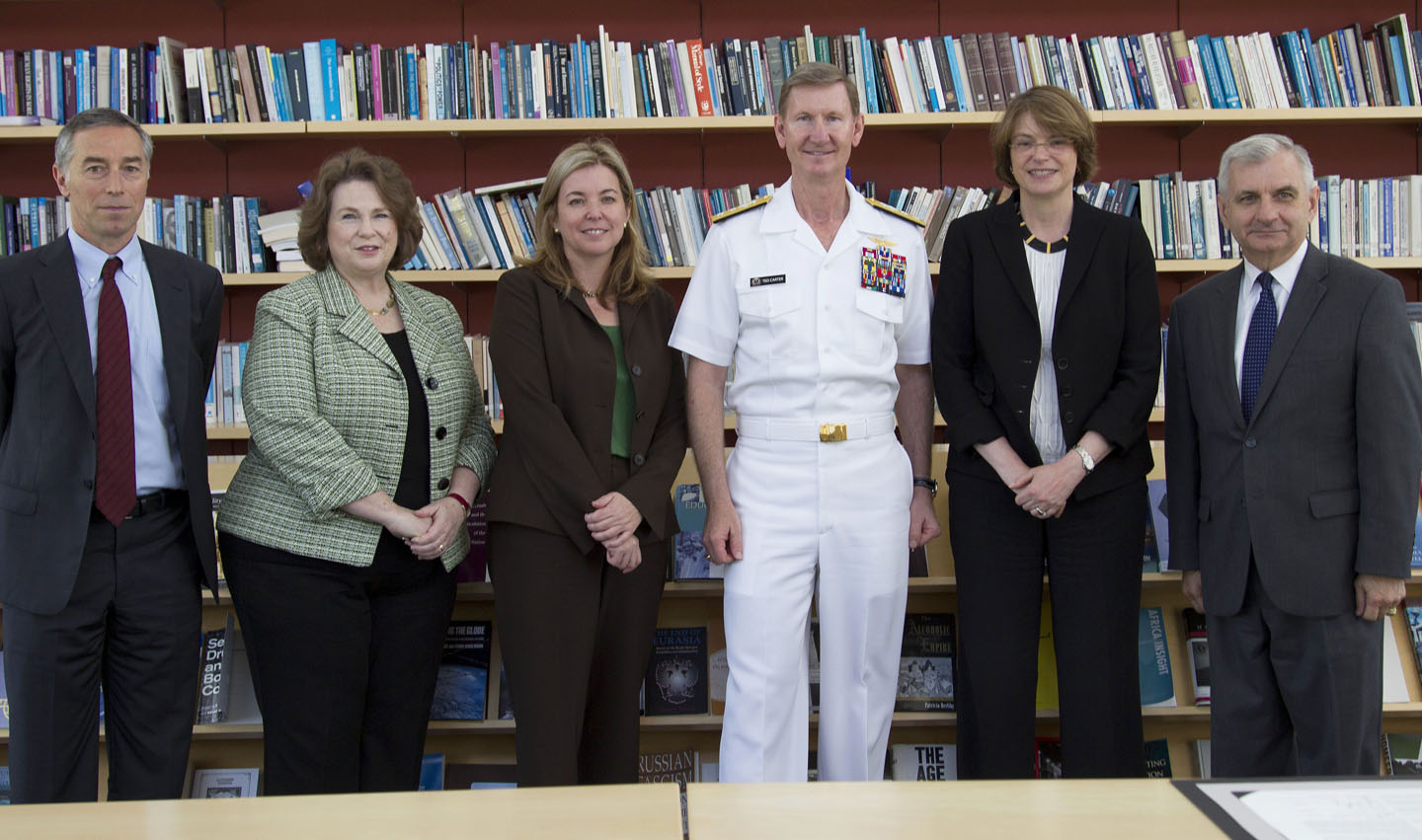PROVIDENCE, R.I. [Brown University] — Brown University President Christina H. Paxson and Rear Admiral Walter E. “Ted” Carter Jr., president of the Naval War College, signed an agreement today (Friday, June 6, 2014) to promote collaborative research and teaching between the two institutions.
The Research and Education Memorandum of Agreement will enhance opportunities for faculty and students of both Rhode Island academic research and teaching institutions to engage each other and their respective expertise in addressing challenges to international security. Richard Locke, director of Brown’s Watson Institute for International Studies, and Mary Ann Peters, provost of the Naval War College, negotiated the arrangement for enhanced institutional collaboration and also signed the initiative.
“Together, Brown's Watson Institute for International Studies and the Naval War College will focus on solutions to contemporary security challenges such as cybersecurity, nonproliferation, and environmental change,” Paxson said.
“This is an exciting time for the Naval War College as our nation ends over twelve years of ground conflict and begins to refocus on other geographic locations and less tangible arenas such as cyberspace, cybersecurity, and the electromagnetic spectrum,” said Carter. “Our partnership with the Watson Institute will help to build a better future for tomorrow by enabling the Naval War College to leverage the academic expertise of the Watson Institute with answering some of these very challenging problems that face our world today.”
Rhode Island Sen. Jack Reed attended the signing. Reed was instrumental in bringing Brown’s Watson Institute and the Naval War College together to develop a partnership to assist policymakers in better understanding U.S. foreign policy problems and devising practical approaches to address them.
“The partnership announced today between the Naval War College and Brown’s Watson Institute for International Studies brings together two of Rhode Island’s leading academic research and teaching institutions for a collaboration that is poised to make a significant impact on the international challenges we face as a nation,” said Reed, who is a member of the Senate Armed Services Committee and chairman of the panel’s seapower subcommittee. “I have great confidence that through this agreement, these two organizations will continue to distinguish themselves in their fields while reinforcing Rhode Island’s reputation as a small state making outsized contributions to U.S. national security.”
Key components of the agreement include an annual distinguished lecture series; regular faculty research colloquia, the first of which was held in May 2014; creation of national security fellowships for affiliation and visiting status at each institution; and enhanced teaching, research, and lecture opportunities. While previous interactions have taken place, especially in the area of cybsecurity, the agreement signed today is expected to facilitate greater exchange and cooperation on security-related topics.

